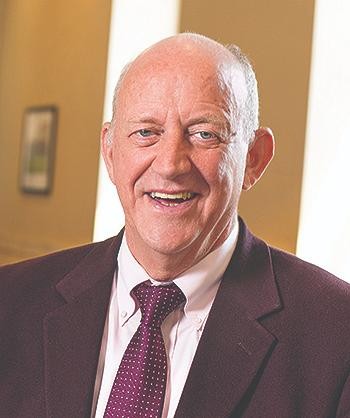With churches closed in response to public health guidelines intended to curb the spread of the Covid-19 pandemic, the world’s 2.4 billion Christians must observe Holy Week, the most sacred time of the year, without being able to gather in their formal places of worship.
This is a Holy Week unlike any in recent memory, says School of Theology and Minstry Professor Thomas Groome. “Holy Week remembers and celebrates the final week of Jesus' life on earth, beginning with Palm Sunday, which marks his entry into Jerusalem, then the celebration of his Last Supper and the institution of the Eucharist on Holy Thursday, his passion and death on Good Friday, and finally, as Christians believe, his resurrection from the dead on Easter Sunday,” says Groome.
“For Christian faith, there is no more significant week of the liturgical year.”
But as churches and religious organizations embrace recommendations on social distancing and eliminating gatherings of more than 10 people, liturgies that ordinarily would bring the faithful together in prayer have been suspended.

Thomas Groome
Though a traditional Holy Week may not be possible, there are opportunities for faith experiences that are enriching, says Groome, the author of What Makes Us Catholic: Eight Gifts for Life and Faith For the Heart: A "Catholic" Spirituality, among other books.
“It is a real challenge and a huge spiritual loss for Christians to have our churches closed this week,” says Groome. “Yet, perhaps and somewhat paradoxically, it could help us to delve deeper into our scriptures—as individual persons and as families—and to ‘tell the story’ for ourselves and each other rather than simply hearing it from our priests and ministers.”
The faithful do have the option of watching services streamed live over the internet. Boston College is live streaming liturgies celebrated by priests on campus throughout Holy Week.
"There is nothing like being physically present and participating in the liturgy and all of its ‘actions’,” says Groome. “Beginning with genuflecting, and then kneeling, standing, sitting, singing, listening, responding, blessing, exchanging peace, and ultimately receiving Eucharist, to be ‘sent forth’ (missa) to ‘announce the Gospel’.
“And during Holy Week, the actions are enriched even further: blessing palms, washing of feet, kissing the cross, etc.” he says. “But think about it—many of those actions can be enacted if we are watching it unfold through the media in our home, and perhaps as a family. There is also an old Catholic practice of a ‘spiritual communion.’ No less a theologian than Thomas Aquinas described this as ‘an ardent desire to receive Jesus in the most holy sacrament and to lovingly embrace him.’ In a sense our desire for the Eucharist becomes a way of receiving Eucharist. So, while we wait for better times, there can be great blessings for us in celebrating ‘virtually’ the liturgies of Holy Week—or any Sunday."
Ed Hayward | University Communications | April 2020




